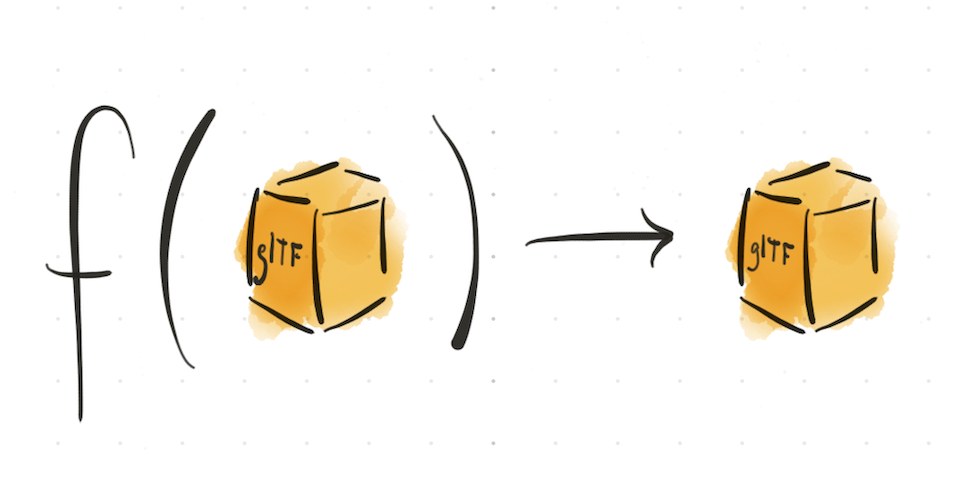DiffuseTransmission
Hierarchy
- EventDispatcher
- GraphNode
- Property
- ExtensionProperty
- DiffuseTransmission
Static properties
Properties
Methods
Makes a copy of this property, with the same resources (by reference) as the original.
Copies all data from another property to this one. Child properties are copied by reference, unless a 'resolve' function is given to override that.
Color of the transmitted light; Linear-sRGB components.
Color of the transmitted light; Linear-sRGB components.
Texture that defines the color of the transmitted light, stored in the RGB channels and encoded in sRGB. This texture will be multiplied by diffuseTransmissionColorFactor.
Texture that defines the color of the transmitted light, stored in the RGB channels and encoded in sRGB. This texture will be multiplied by diffuseTransmissionColorFactor.
Settings affecting the material's use of its diffuse transmission color texture. If no texture is attached, TextureInfo is
null.
Percentage of reflected, non-specularly reflected light that is transmitted through the surface via the Lambertian diffuse transmission, i.e., the strength of the diffuse transmission effect.
Percentage of reflected, non-specularly reflected light that is transmitted through the surface via the Lambertian diffuse transmission, i.e., the strength of the diffuse transmission effect.
Texture that defines the strength of the diffuse transmission effect, stored in the alpha (A) channel. Will be multiplied by the diffuseTransmissionFactor.
Texture that defines the strength of the diffuse transmission effect, stored in the alpha (A) channel. Will be multiplied by the diffuseTransmissionFactor.
Settings affecting the material's use of its diffuse transmission texture. If no texture is attached, TextureInfo is
null.
Dispatches an event on the GraphNode, and on the associated Graph. Event types on the graph are prefixed,
"node:[type]".
Removes both inbound references to and outbound references from this object. At the end of the process the object holds no references, and nothing holds references to it. A disposed object is not reusable.
Returns true if two properties are deeply equivalent, recursively comparing the attributes of the properties. Optionally, a 'skip' set may be included, specifying attributes whose values should not be considered in the comparison.
Example: Two Primitives are equivalent if they have accessors and materials with equivalent content — but not necessarily the same specific accessors and materials.
Returns a reference to the Extras object, containing application-specific data for this Property. Extras should be an Object, not a primitive value, for best portability.
Updates the Extras object, containing application-specific data for this Property. Extras should be an Object, not a primitive value, for best portability.
Returns true if the node has been permanently removed from the graph.
Returns the name of this property. While names are not required to be unique, this is encouraged, and non-unique names will be overwritten in some tools. For custom data about a property, prefer to use Extras.
Sets the name of this property. While names are not required to be unique, this is encouraged, and non-unique names will be overwritten in some tools. For custom data about a property, prefer to use Extras.
Returns a list of all properties that hold a reference to this property. For example, a material may hold references to various textures, but a texture does not hold references to the materials that use it.
It is often necessary to filter the results for a particular type: some resources, like Accessors, may be referenced by different types of properties. Most properties include the Root as a parent, which is usually not of interest.
Usage:
const materials = texture .listParents() .filter((p) => p instanceof Material)

Made by Don McCurdy. Documentation built with greendoc and published under Creative Commons Attribution 3.0.
Defines diffuse transmission on a PBR Material. See KHRMaterialsDiffuseTransmission.